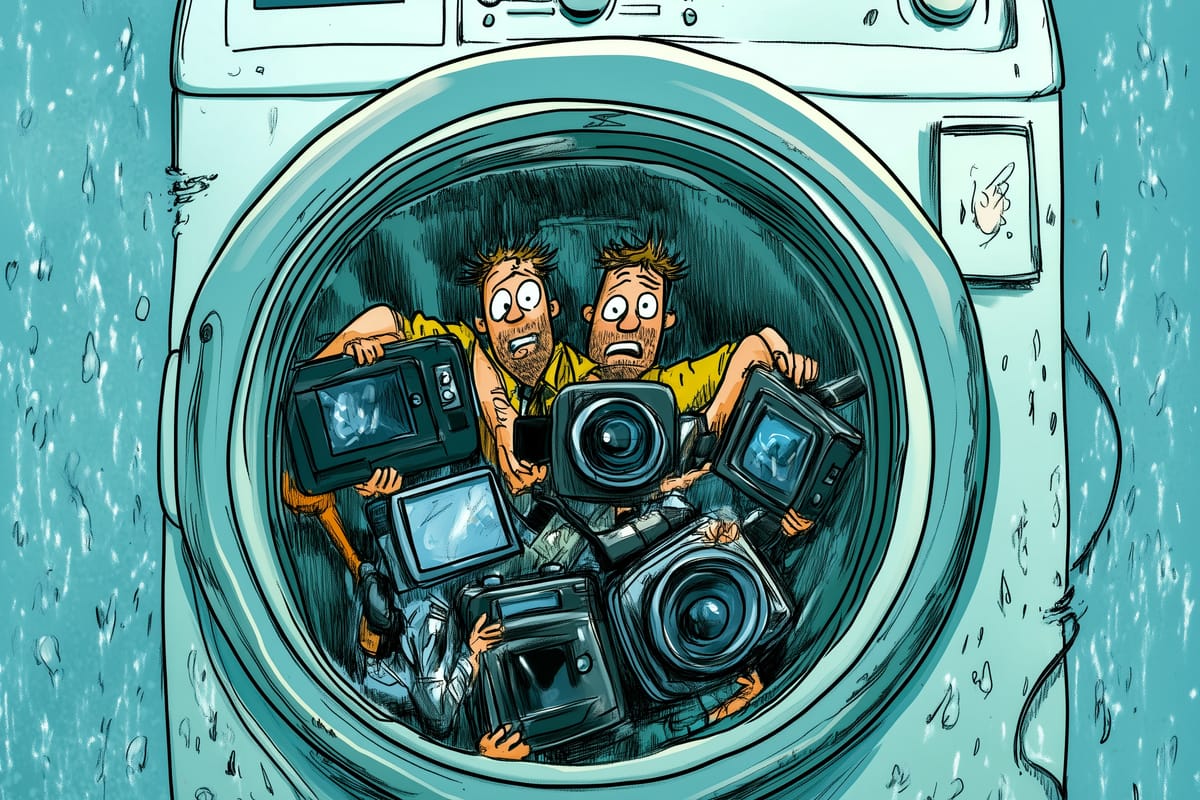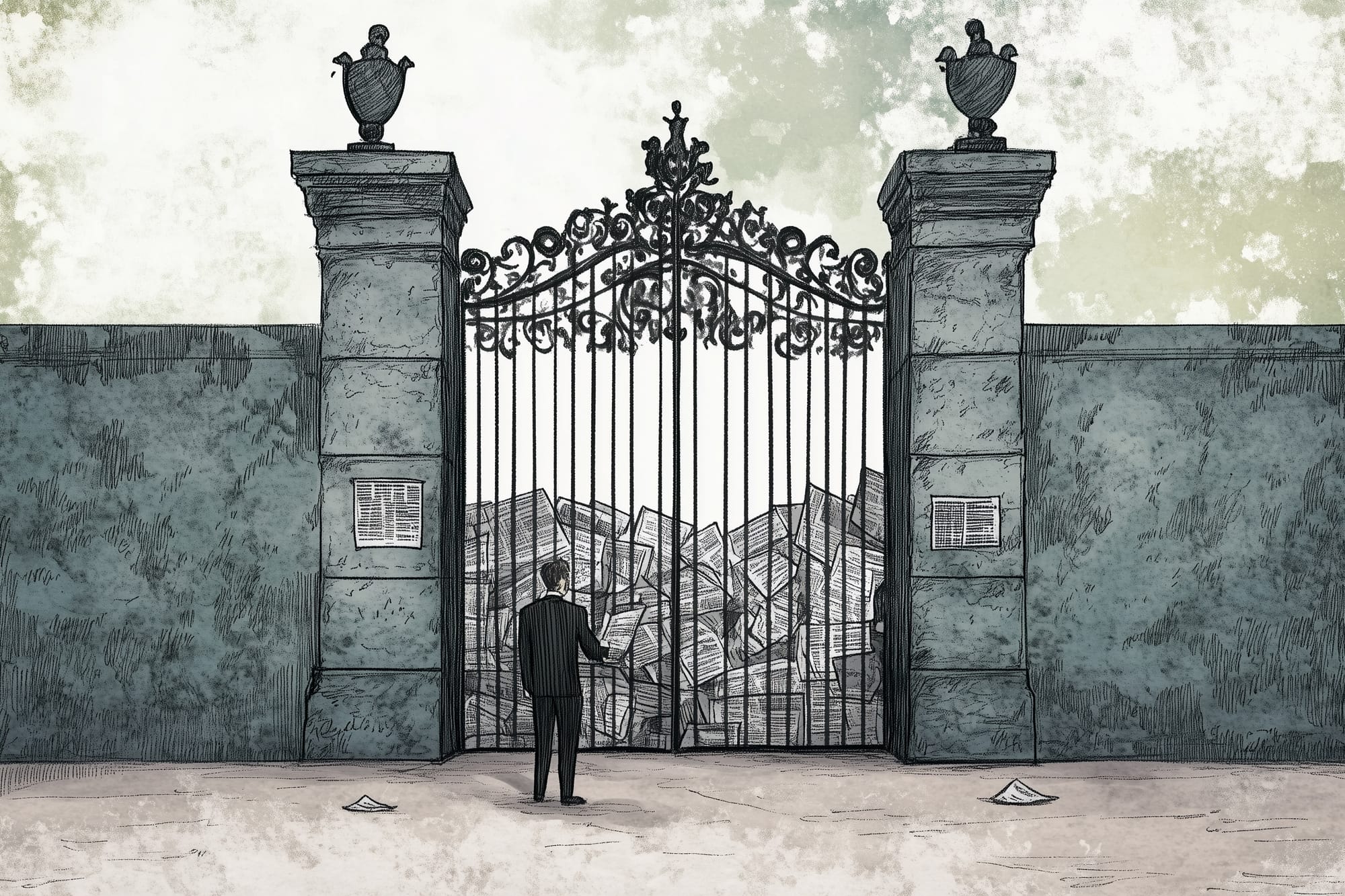Spinning the digital news cycle
The Sun's starting to gate its content, and local news is putting up a paywall. No, this isn't a post from 2014 — this is happening now.

I've been thinking a lot about cyclicality in media. There's the resurgence of podcasting, which had one boom in the late 2000s, and another in the late 2010s. There's the return to community. And there's the new wave of social video. I started the first run of my social video course since 2019 today, because of the resurgence in interest. (Not too late to join in — you can catch up on week one via video.)
And now The Sun is edging back towards a paywall, by putting some of its content behind a registration gate. I have some history here. I was part of a consortium that bid on the work last time it put up a paywall, and we didn't get the job. So, there was no little schadenfreude in my vicinity when the approach they went with failed.
Why did it fail? They were trying to charge people for what was commodity information on the web. If your content isn't unique, people will only pay for relationship, community or specific expression. And what are The Sun regwalling this time? Over to Charlotte:
Press Gazette […] checked The Sun’s comment page and a higher percentage of these articles were behind the registration wall, including the latest columns by some of its star writers: political editor Harry Cole, Rod Liddle, Jane Moore and Tony Parsons.
Yeah, that's unique content, if the readers value those specific commentators. The importance of star writers was a huge factor behind the stablemate The Times's success with its paywall.
For now, just a registration wall, but is it the first step towards a real premium tier? That'll be interesting to watch.

The meter's running for local news
While we're on the subject of cyclicality, the news feels very much like the late 2000s/early 2010s, when the last great wave of paywalls went up. Charlotte also reports (give that woman a pay rise, Dominic) on Iliffe putting up a metered paywall:
Iliffe had already implemented metered paywalls on its sites in Newbury, New Milton and Stratford. At the start of October it rolled out the strategy for the rest of its sites, moving from an in-house system to the Piano platform. Subscribers see a premium version of the sites with most of the advertising removed, plus some extra exclusive content and access to the archives.
Lots to like here. Metered makes sense for local news. If you make it useful to the point that people keep coming back enough to hit the wall, you're proving your value. And getting off your own subscriptions stack onto an external one is removing a whole bunch of headaches you really don't need.
But the challenge is going to be proving the value to a local readership day after day after day. The tech and the business model is in place. It's all down to the editorial strategy now.
The WordPress battle explained
A really useful, concise explanation of what's happening, cutting through much of the emotional reaction to the events (and found via Charles Arthur's invaluable daily newsletter). Money quotes (in both senses):
Indeed, the more you look into this conflict, the clearer it becomes that this is no battle between a spunky old-school, open-source leader against a big bad commercial company and more a conflict between a capitalist who wants a bigger share of the WordPress pie and a company that had been doing quite well from the status quo.
I think, for longer term WordPress community members, this is the big issue. Somewhere in their heads, Matt is still the young guy that gave them a free way off Movable Type when Six Apart decided to start charging. Matt is now far, far richer than the Trotts (the couple, now long-divorced, who founded Six Apart) ever were. And, indeed, richer then most of us will ever be. (He really wants people to know how generous he is, too, which is revealing.)
From where I sit, this is not a battle over open source. It’s a fight between someone worth hundreds of millions and a company worth billions. When you’re trying to figure out what’s going on in any conflict, whether it’s a family fight, a divorce, or a business fight, one of the best rules of thumb is to follow the money. What it’s telling me here is it’s about the cash.
And that's exactly it.

And finally… the once and future web
Great talk from Molly White, the force behind the wonderfully cynical yet enlightening Web 3 is going just great. (Obligatory journalism content: think of the storytelling inherent in presenting crypto developments in a timeline like this…). Enjoy her talk from the very last XOXO about the web, platforms and what's next:
Molly has here own newsletter, Citation Needed. She's published a text and audio version there, if that's more your thing.






